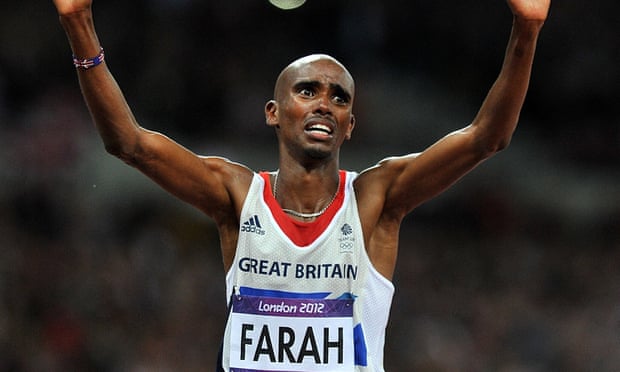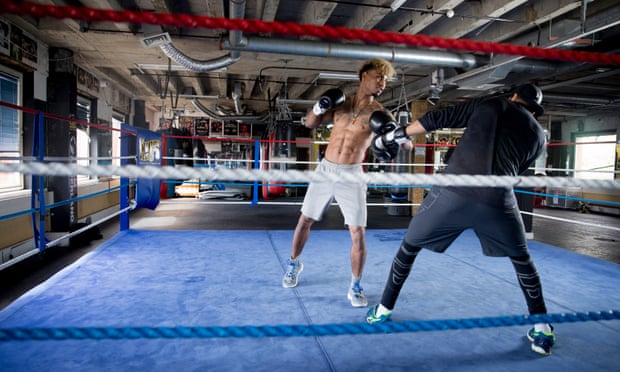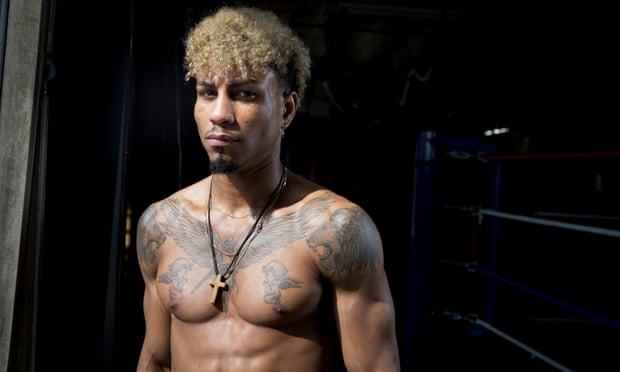[ad_1]
A prodigious talent with the drive and ambition to make it all the way to the top, when Kelvin Bilal Fawaz got the chance to represent Team GB as a boxer at the 2012 Olympics in London it was a dream come true.
Trafficked as a child from Nigeria to the UK and forced into domestic servitude, Fawaz had the opportunity for Olympic glory in the place he now called home.
Yet he was never given the chance to take his place on the global stage.
Instead, the Home Office refused to give him the work visa he needed for the prospect of a professional boxing career and he had to turn down the invitation from Team GB to take part in both the 2012 and 2016 Olympics.
Last week, Fawaz, along with millions of other fans across the country, watched as Sir Mo Farah, who achieved global stardom by winning two golds at the 2012 Olympics, before adding another pair in Rio in 2016, revealed that he too was trafficked into domestic servitude from Somalia as a child.
Farah also revealed his real name was Hussein Abdi Kahin and that he has been living under a false identity ever since. But while the British government has made it clear that Farah’s citizenship is not under threat, Fawaz said his own case showed the reality for most trafficking victims.

“Watching Mo Farah disclose his trafficking ordeal over the last week has brought up a lot of pain,” said Fawaz. “It is impossible not to compare our lives and wonder what could have been if I’d only been given the chances that were offered to him.”
Throughout his adult life, Fawaz has existed in a state of immigration limbo, denied the opportunity to work, twice detained in immigration detention centres and at risk of forced deportation to Nigeria, a country that has refused to accept his citizenship or issue him with a passport.
“The trauma of being trafficked and exploited does not go away, it lives with you every day,” he said. “Mo Farah is a sporting legend but I have seen my own talent wasted and my opportunity to become an Olympian lost. Even though the Home Office has accepted I was a child trafficking victim, they have relentlessly denied me the chance to build a life and compete in the sport that I love.”
After escaping his exploiters and reporting his traffickers to the authorities, Fawaz spent time in care and saysthat discovering boxing was his salvation. Against the odds, he rose through the non-professional ranks to captain the England amateur boxing team.

Over the years, some of the biggest names in the sport have appealed to the Home Office on his behalf, asking that he be allowed to box professionally, including promoter Frank Warren. Former world featherweight champion Barry McGuigan offered him a £230,000 contract in 2014 that he could not sign because the Home Office refused to settle his immigration status.
In 2020, after a 16-year battle with the Home Office,, Fawaz was finally granted a 30-month visa after the government accepted he was a child trafficking victim. He was quickly signed by MTK Global, one of the world’s largest boxing management agencies.
He fought two matches as a professional, which he won, before MTK closed after US government sanctions against its co-founder Daniel Kinahan, a suspected crime boss.
“I am now struggling to get promoters to sign me because they say at 34 I’m too old and my boxing career is over before it started,” Fawaz said.
“I am still fighting the Home Office for my right to remain here beyond my 30-month visa and they will not give me documents to travel abroad, where I’ve been offered the chance to fight professionally.
“They can’t deport me to Nigeria because the government there won’t recognise my citizenship so I don’t understand why they’re doing this. I’m still in poverty, my future is still uncertain and all because of something that happened to me as a child that I had no power over.”
Fawaz says that his experience is similar to many other child trafficking victims in the UK who spend years fighting immigration battles with the Home Office after they have escaped exploitation.
He added: “My experience shows that if Mo Farah had not been a national treasure and achieved what he has achieved, they might have locked him up or deported him. It hurts deep in my soul that I am seeing my life pass me by and this talent I was given just going to waste. My dream was to represent Team GB and this has been taken away from me and I don’t understand why.”
When he was a teenager and still in the care system, Fawaz received convictions for minor offences including cannabis possession, driving without insurance and spraying graffiti. He has never been to prison and has never received a harsher sentence than community service.
However, the Home Office said his “lengthy criminal record… added to the complexities in considering his case”. According to government figures, just 2% of child trafficking victims are given discretionary leave to remain, which they are entitled to under international law. Instead many, like Fawaz, are given temporary visas until their 18th birthday, when they then enter the asylum system and face years of limbo or deportation.
Government figures also show that 35% of adults who were trafficked to the UK as children were refused their first asylum application in 2020.
[ad_2]
Source link

Leave a Reply
You must be logged in to post a comment.